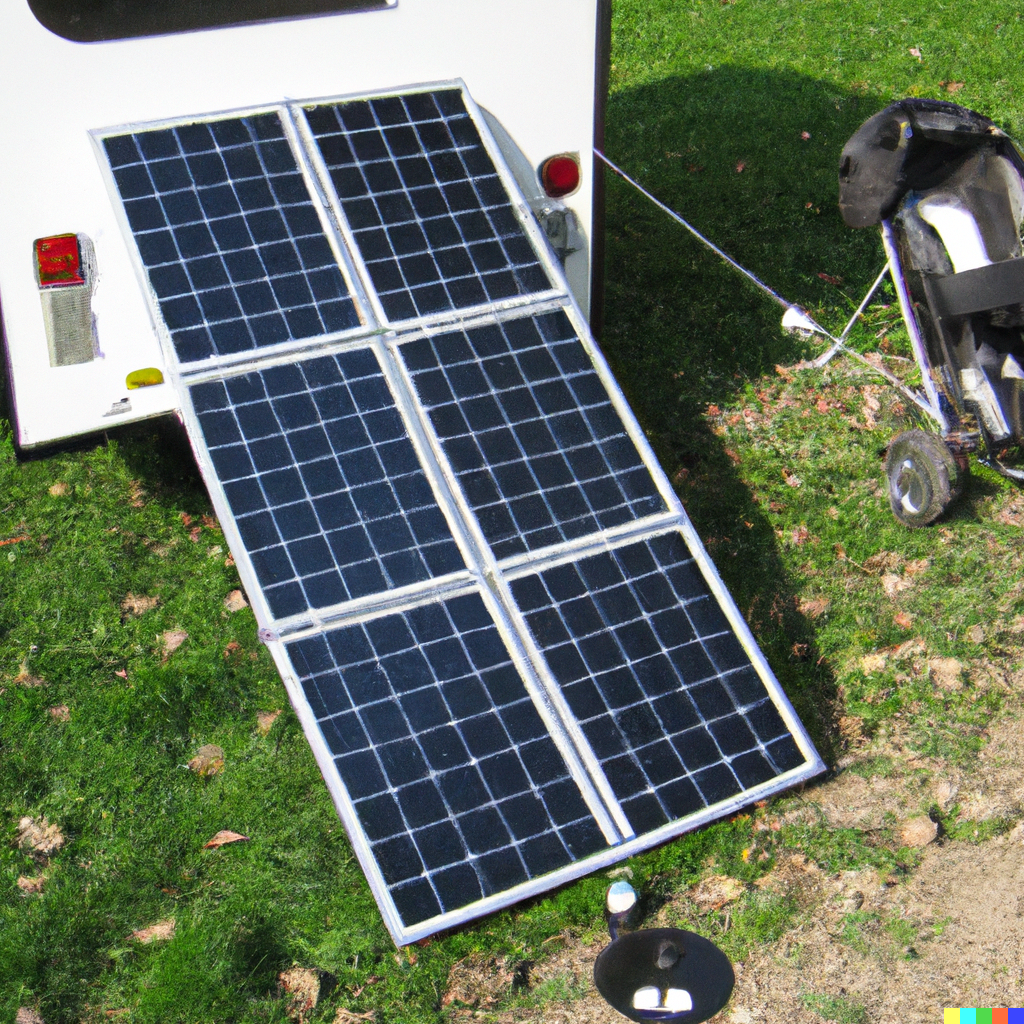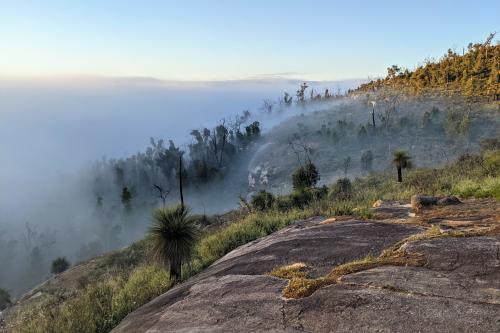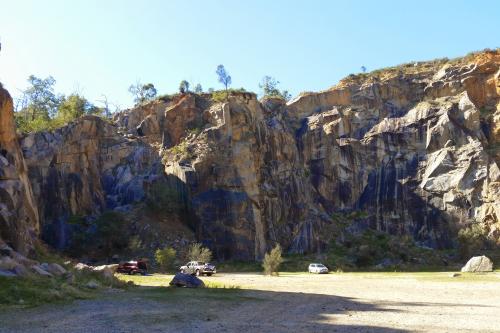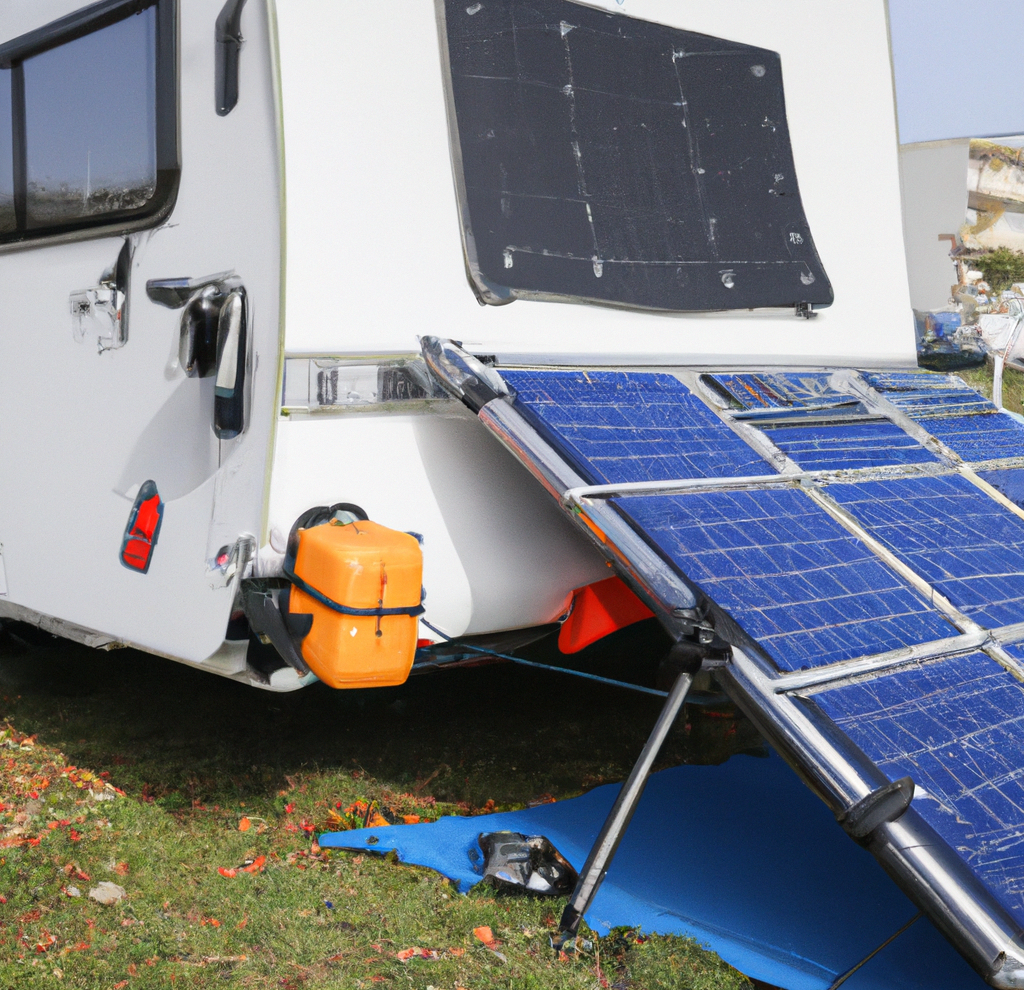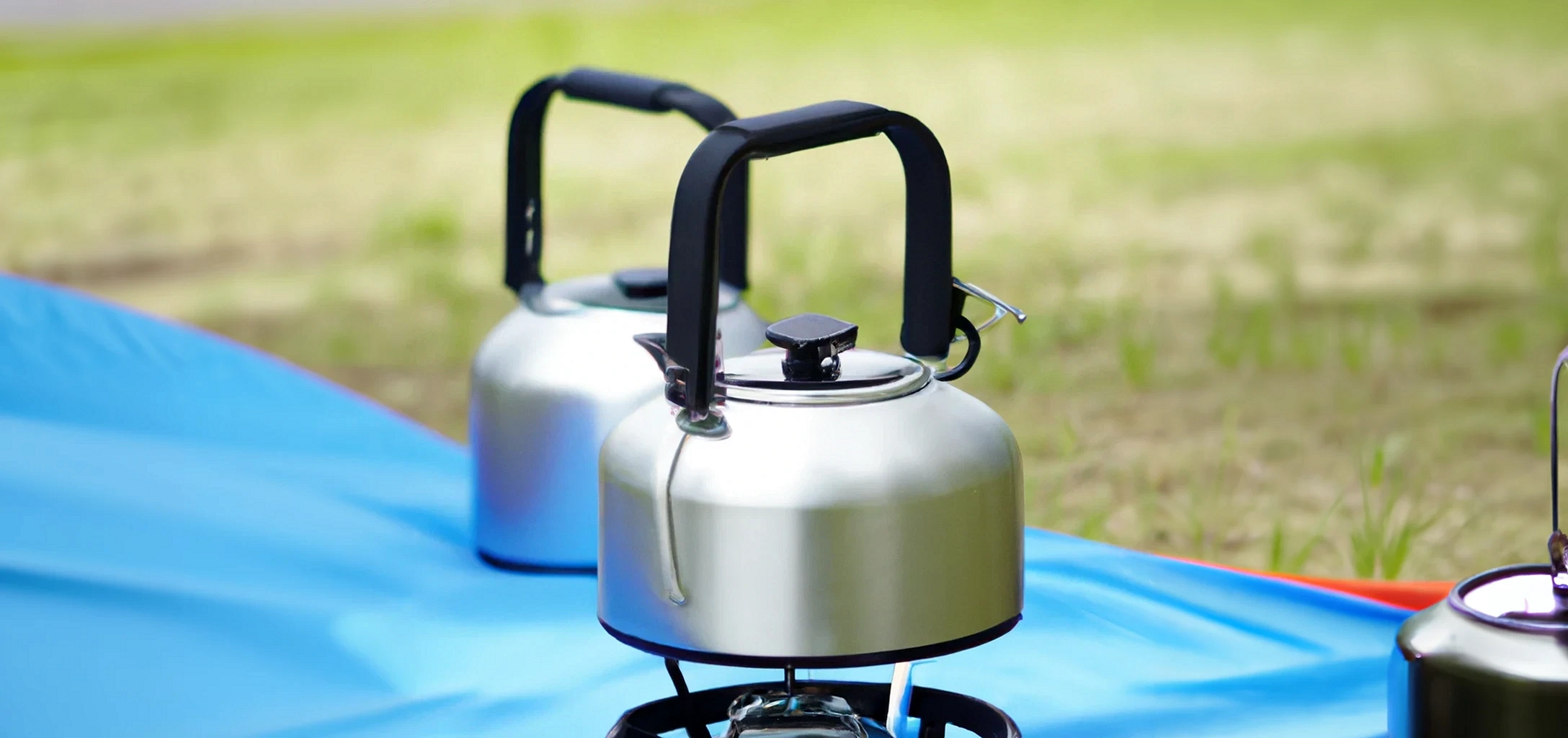Camping can be a fun and enjoyable way to spend time outdoors, but it can also be challenging when it comes to staying powered up and connected.
Whether you are trying to charge your phone, run a fridge, or use other electronic devices, finding a reliable and convenient power source can be a significant concern when you are away from home. One option that is increasingly popular among campers is solar power, which allows you to generate electricity from the sun’s energy.
Next, I will explain the basics of solar power for camping, including how it works, the benefits and drawbacks of using solar energy, and how to select the right solar panel for your needs.

How Camping Solar Panels Work
Solar power is generated using photovoltaic (PV) cells, made from a unique material that converts sunlight into electricity. When sunlight hits a PV cell, it causes the electrons in the cell to become excited and move around, which generates an electrical current. This current is then captured and stored in a battery or used to power equipment directly.
There are many different types of camping solar panels available, ranging from small, portable panels that can be used to charge phones and other small devices to large panels that can generate significant amounts of power. Solar panels are often mounted on a frame or stand and oriented to face the sun, which allows them to capture as much sunlight as possible.
Benefits of Using Solar Power for Camping
There are many benefits to using solar power for camping, including the following:
- Convenience:
Solar panels are easy to set up and use and can be placed almost anywhere. This means you can use them to generate power at your campsite, even if you are in a remote location without access to a power grid.
- Reliability:
Solar panels are reliable and can generate power consistently as long as the sun shines. This makes them an excellent choice for campers who need a dependable power source.
- Portability:
Many solar panels are portable, so you can easily pack them and take them camping with you. This makes them an excellent option for campers who want to stay powered up on the go.
- Sustainability:
Solar power is a clean and renewable energy source that does not produce greenhouse gases or other pollutants. This makes it a more environmentally friendly choice for campers who want to reduce their carbon footprint.
Drawbacks of Using Solar Power for Camping
There are also some drawbacks to using solar power for camping, including:
- Sun availability:
Solar panels rely on sunlight to generate power, which means they may not be able to create enough power if the sun is not shining. This can be a problem in cloudy or overcast conditions or areas.
- Power Capacity:
Solar panels have a limited capacity, which means they can only generate a certain amount of power at any given time. This can be a problem if you are trying to power larger appliances or multiple devices simultaneously, as you may need more power to meet your needs.
- Cost:
Solar panels can be expensive, particularly if you are looking for a high-capacity panel. This can be a problem for campers on a budget who may need more money to afford the upfront cost of a solar panel.
- Maintenance:
Solar panels require maintenance, such as cleaning and checking for damage, to ensure they operate at their best. This can be a minor inconvenience for some campers, who may want to spend less time maintaining their solar panels.
How to Select the Right Solar Panel for Your Needs
When selecting a solar panel for camping, there are a few key factors to consider, including:
- Power Requirements:
As mentioned earlier, you will need to consider the power requirements of your equipment. Calculate the total power consumption of your equipment to determine the size of the solar panel you need.

How to Select the Right Solar Panel for Your Needs
When selecting a solar panel for camping, there are a few key factors to consider, including:
- Sun Availability:
The sun available at your campsite will also affect the size of the solar panel you need. If camping in an area with limited sun exposure, you will need a larger solar panel to generate enough power.
- Battery Storage Capacity:
If you are using a battery to store the power generated by the solar panel, you will also need to consider the battery’s capacity. A larger battery will allow you to store more power, which can be helpful if camping in an area with limited sun exposure.
- How Portable the Panels Are:
Consider the size and weight of the solar panel, particularly if you will be carrying it with you when you go camping. Look for a panel that is lightweight and compact, so it is easy to pack and transport.
- The Price:
Solar panels can range in price from a few hundred dollars to several thousand dollars, depending on the size and features of the panel. Consider your budget when selecting a solar panel, and look for a panel that offers the best value for your money.
- Brand of Camping Solar Panel:
Choose a reputable brand when selecting a solar panel, as this can help ensure you get a high-quality product. Look for panels that come with a warranty and have good customer reviews.
Solar power is a convenient and reliable option for campers
Solar power is a convenient and reliable option for campers who want to stay powered up and connected while enjoying the great outdoors. With some planning and the right solar panel, you can quickly generate the electricity you need to power your devices and appliances while camping. Just be sure to consider your power requirements, sun availability, battery capacity, portability, price, and brand when selecting a solar panel to get the best panel for your needs.
- What are camping solar panels, and how do they work?
Camping solar panels are portable panels that use photovoltaic (PV) cells to convert sunlight into electricity. They are designed to be easily set up and used at a campsite and can power various electronic devices and appliances.
- How do I choose the right solar panel for my needs?
When choosing a solar panel for camping, consider the power requirements of your equipment, the sun availability at your campsite, the capacity of any batteries you will be using, the portability of the panel, the price, and the brand.
- Can I use a solar panel to power all my electronic devices and appliances while camping?
It depends on the size and capacity of the solar panel, as well as the power requirements of your equipment. A larger panel with a higher capacity may be able to power more devices and appliances, but it may also be more expensive.
- How do I set up and use a solar panel while camping?
To set up a solar panel while camping, follow the manufacturer’s instructions for mounting and orienting the panel towards the sun. Connect any batteries or devices you want to power to the panel using the appropriate cables or adapters.
- What are the benefits of using solar power for camping?
The benefits of using solar power for camping include convenience, reliability, portability, and sustainability. Solar panels are easy to set up and use and can generate power consistently as long as the sun shines. They are also portable, so you can take them with you when you go camping, and they are a clean and renewable energy source.
- What are the drawbacks of using solar power for camping?
The drawbacks of using solar power for camping include sun availability, capacity, cost, and maintenance. Solar panels may not be able to generate enough power in cloudy or overcast conditions, and they have a limited capacity. They can also be expensive, particularly if you are looking for a high-capacity panel, and they require some maintenance to ensure they are operating at their best.
